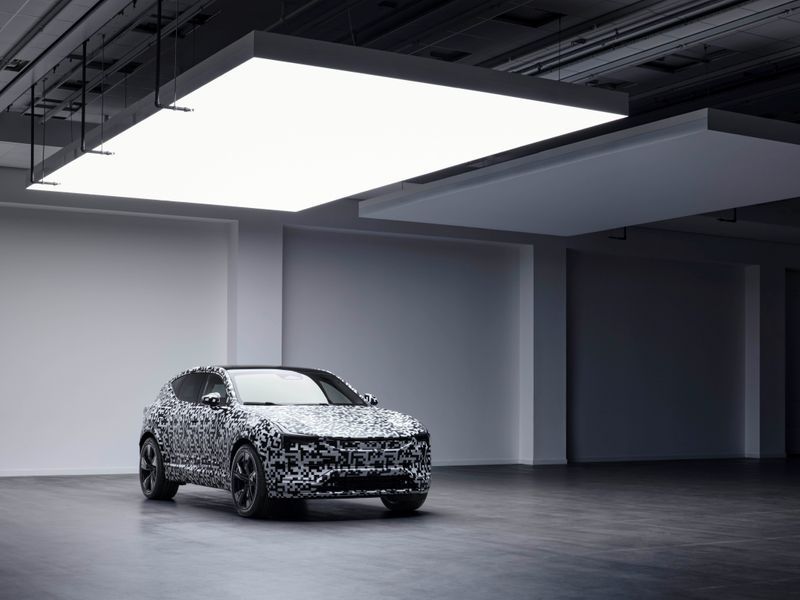By Ben Klayman
(Reuters) – Polestar, the premium electric vehicle maker owned by China’s Geely and Volvo Cars, expects sales to hit 29,000 this year and to grow tenfold by 2025 as it rolls out new vehicles starting with an SUV next year, its chief executive said.
The Polestar 3 SUV, which will be built at Volvo Cars’ plant in South Carolina starting in the second half of 2022, is an “important step for our company,” Thomas Ingenlath said in an interview ahead of a series of events Polestar is hosting with investors to discuss company strategy.
“We are not a virtual company waiting to build factories and sell cars; we are an actual company already building and selling cars around the world,” he said.
Polestar launched in 2017 with the low-volume halo Polestar 1 hybrid performance car. It now sells the fully electric Polestar 2 car, and on Thursday, released a teaser image of the Polestar 3.
In September, the EV maker announced a deal to go public through a reverse merger with special-purpose acquisition company (SPAC) Gores Guggenheim at a valuation of $20 billion. That deal is expected to close in the first half of 2022.
Polestar, based in Gothenburg, Sweden, expects global sales to hit 29,000 this year, and with plans to launch a new vehicle annually for the next three years, it expects to sell 290,000 units by 2025, Ingenlath said.
The Polestar 4 SUV coupe is scheduled to follow in 2023 and the Polestar 5 four-door GT in 2024. The company expects 40% of sales in the medium term to come from Europe and 30% each from North America and Asia.
Polestar expects revenue of $1.6 billion this year, double that amount next year, and is targeting $17 billion in 2025, according to Ingenlath.
Part of that push will be the addition of over-the-air updates for its vehicles, starting with a performance upgrade for the Polestar 2 that sells for about 1,000 euros and gives a 68-horsepower boost in performance. The company also expects to add self-driving capability on the highway for the Polestar 3 around mid-decade.

